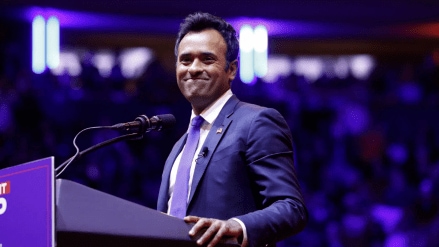Vivek Ramaswamy, the entrepreneur and former Republican presidential candidate, has been making headlines due to his potential exit from the Department of Government Efficiency (DOGE) to pursue a campaign for Ohio governor, sparking speculation about his future in both politics and public service. Ramaswamy, who endorsed Donald Trump after withdrawing from the 2024 presidential race, is expected to announce his gubernatorial bid soon, potentially by the end of January. His decision comes amidst changes in Ohio’s political landscape, including the recent appointment of Lieutenant Governor Jon Husted to the U.S. Senate, creating new opportunities in state leadership.
Who Is Vivek Ramaswamy?
Born in Cincinnati, Ohio, to Indian immigrant parents, Ramaswamy is reportedly a Harvard and Yale graduate who made his mark in the biotech industry. He gained national attention as the founder of Roivant Sciences, a pharmaceutical company focused on developing life-saving treatments. According to media reports, Ramaswamy has also authored several bestselling books, including Woke, Inc., which critiques corporate activism and emerged as a prominent conservative voice during his 2024 presidential campaign.
What is Vivek Ramaswamy’s net worth?
Ramaswamy has an estimated net worth of $800 million, according to media reports. Most of his wealth comes from his ownership stake in Roivant Sciences, which went public in 2021 with a $7.3 billion valuation. Additionally, he co-founded Strive Asset Management in 2022, where his stake is worth over $100 million. His investments in cryptocurrencies, private jets, and companies like Rumble further add to his wealth. He also owns a $2 million home in Ohio with his wife, Apoorva.
What does Vivek Ramaswamy do?
Ramaswamy’s career spans biotech, financial management, and politics. He founded Roivant Sciences, spearheaded Strive Asset Management, and has investments in emerging technologies. Beyond business, he has written books and advocated for reducing government inefficiency. Now, as co-leader of the Department of Government Efficiency, he aims to streamline federal systems and integrate private-sector innovation into public governance.
